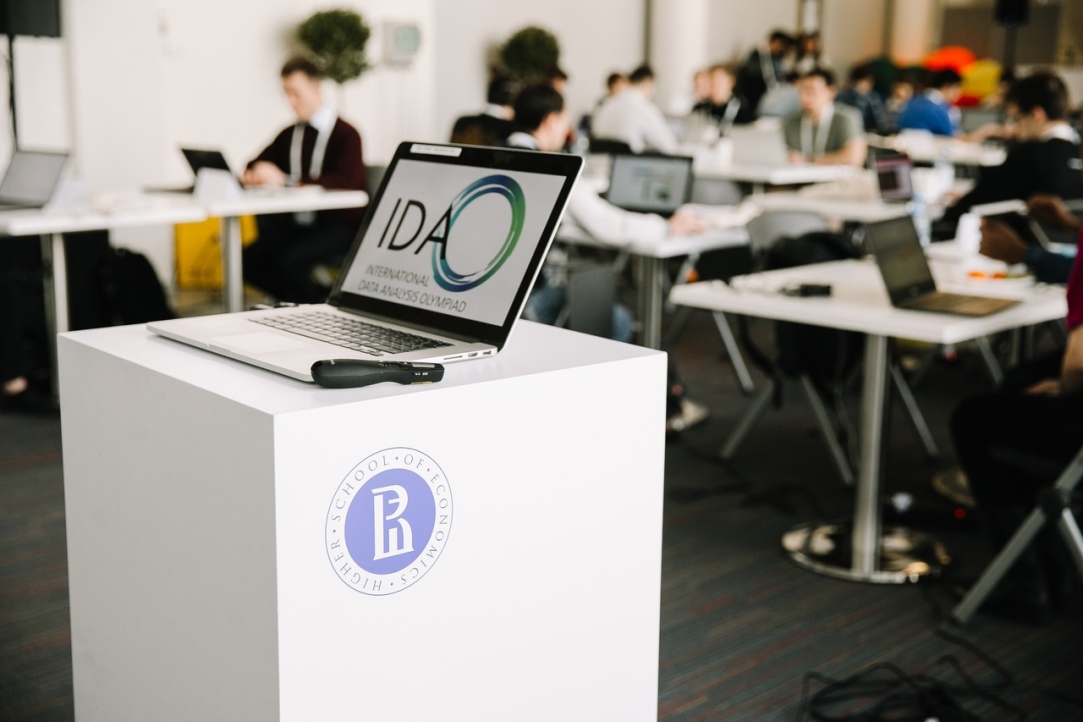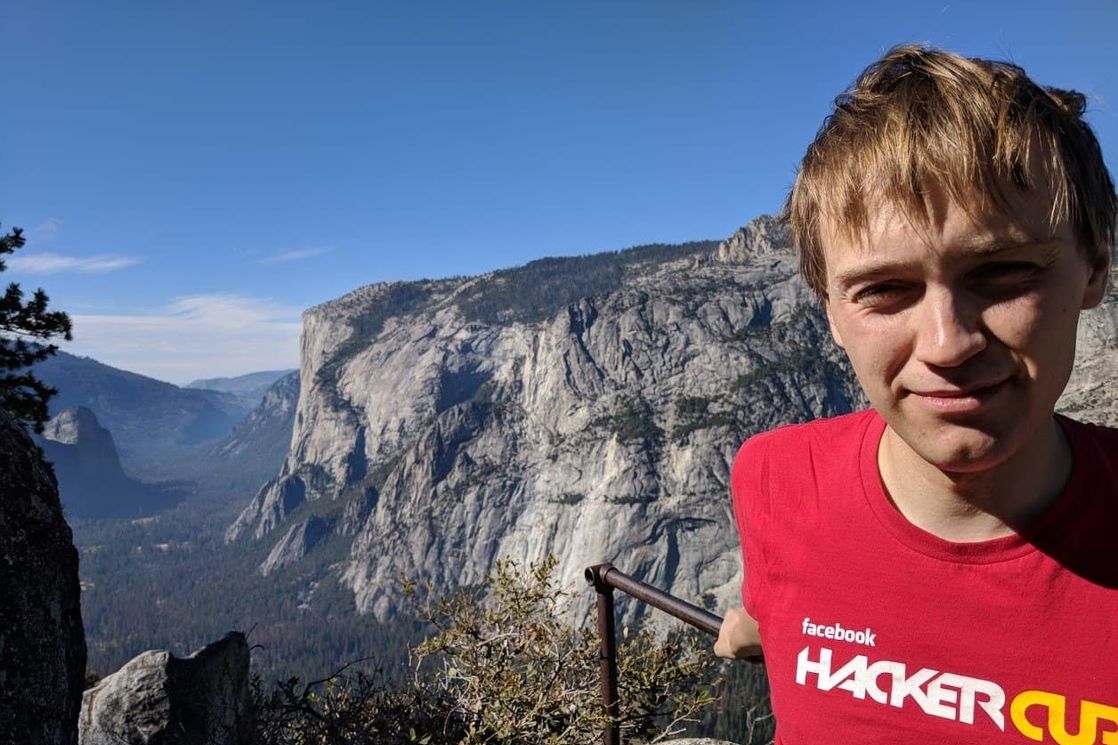HSE University Faculty of Computer Science and Yandex Hold Final Round of International Data Analysis Olympiad IDAO-2020

The HSE Faculty of Computer Science (FCS) and Yandex held the Online Final of the IDAO-2020 International Data Analysis Olympiad, which took place for the third time. The task for the final round was provided by QIWI, the platinum partner of the event. Sberbank also became a competition partner.
IDAO was created by leading data analysts with their future colleagues in mind—emerging developers and analysts. In the competition, participants face real-world challenges in a competitive environment. The Olympiad consisted of two rounds — a qualifying and a final — and held on the Yandex.Contest platform, an online automated service for marking assignments and scoring competitions.
Stanislav Fedotov, Head of the Yandex School of Data Analysis, Moscow Branch
It is very important for us that together with FCS and partners we organise an event such as IDAO, where talented specialists get together and come up with new solutions for current Data Science problems. This year, the final, which is traditionally held at the Yandex office, had to be moved online. But that didn’t prevent the participants from showing what they were capable of—how they are able to make quick decisions, work well in a team and feel confident in a competitive environment. We hope that participating in this competition will help the young people find their vocation.
A total of 2,756 participants from 83 countries were registered for the IDAO 2020 qualifying round. They had to build a model that predicted the position of space objects using simulation data. Predicting the position of satellites is an important task for the space industry to avoid collisions that destroy satellites and create space debris. The task was developed by staff of the Laboratory of Methods for Big Data Analysis LAMBDA and the Russian Astronomical Science Centre (ASC).
34 teams from 13 countries competed in the Online Final. In the task from the platinum partner QIWI, participants needed to determine which of the bank’s customers would benefit from granting special conditions for a loan product. The decision had to be made based on real user behaviour data. The jury consisted of ML specialists and scientists. The total prize fund amounted to 800,000 rubles.
Yuliya Bogacheva, Chief Data & Analytics Officer, QIWI
We are very pleased to have participated in the event: the teams managed to surprise us with their solutions. It’s great that we have international competitions in this country on such an important topic as data analysis. We hope the participants continue to do their beloved work and implement strong projects that will change the world!
IDAQ-2020 winning teams:
1st place: vrn, Voronezh: Ivan Bragin, Igor Kleynikov
2nd place: Mylene Farmer, Moscow: Ilya Ivanitskiy, Anvar Kurmukov, Vasiliy Rubtsov
3rd place: random team, Zurich, Switzerland: Ilya Kornakov, Kirill Borozdin
Tamara Voznesenskaya, FCS First Deputy Dean, IDAO Organising Committee Chair
This year we faced unforeseen challenges when the face-to-face competition, where participants from all over the world were supposed to meet, had to be moved online. We tried to make the event as full as possible and had lectures from leading speakers of the Faculty, Yandex, QIWI, and the University of Padua, and we believe that everything worked out. Next year we will continue our work and develop the Olympiad further.
Ivan Bragin, vrn, Voronezh, First place

I learned about the IDAO Olympiad from Telegram a few days before its start, so it was my first time participating in it. The task of determining the satellite position seemed interesting, and it was clear that it would not be difficult to proceed to the second stage. In order to put together a team, I went on all the online chats and invited all my friends to participate. Only Igor Kleynikov responded, though he doesn’t have much experience in ML.
I participate in a large number of kaggle-like competitions, and for me the remote mode of competition is more familiar than offline events which I have attended only twice. Onsite events involve long drives, sleepless nights, and lots of socialising. It’s all very interesting, but also exhausting.
Ilya Ivanitskiy, Mylene Farmer, Moscow. Second place

This is my second time competing in the IDAO – last year I won. I like these short contests: limited time, drive, speed. There are three people in our team: me, Vasily Rubtsov, and Anvar Kurmukov. We all studied together in the FCS Master’s programme at HSE University. Vasiliy and I work together now: we analyse data on Avito. I improve automatic moderation and try to make Avito more secure, and Vasily makes recommendations. In fact, there is no clear division of roles in the team: we all generated the features, investigated the data, and built the models. This approach, on the one hand, seems to be sub-optimal, but, on the other, it allows you to get different models that you can then combine for more stable solutions.
Ilya Karnakov, random team, Zurich, Switzerland. Third place

This is my first time participating in the IDAO. I’m interested in Data science/ML in general, but I have no time to participate in contests like Kaggle. But then I saw the announcement for this relatively short (in duration) final. Since this is a team competition, I asked a colleague (Kirill Borozdin – ed.) if he wanted to join, and he was interested. Participating in the remote competition was not very difficult (I think onsite would be much harder, because we would have nowhere to sleep).
See also:
HSE University and Yandex Education Release Free Online Handbook in Math and Data Analysis
Experts from the HSE Continuing Education Centre, the Master's Programme 'Artificial Intelligence', and Yandex Education have developed and published a free math handbook in data analysis (in Russian). This is the seventh online publication in a series of digital self-study textbooks dedicated to specific IT areas.
‘Bots Are Simply Imitators, not Artists’: How to Distinguish Artificial Intellect from a Real Author
Today, text bots like ChatGPT are doing many tasks that were originally human work. In our place, they can rewrite ‘War and Peace’ in a Shakespearean style, write a thesis on Ancient Mesopotamia, or create a Valentine’s Day card. But is there any way to identify an AI-generated text and distinguish it from works done by a human being? Can we catch out a robot? The Deputy Head of the HSE School of Data Analysis and Artificial Intelligence, Professor of the HSE Faculty of Computer Science Vasilii Gromov explained the answer in his lecture ‘Catch out a Bot, or the Large-Scale Structure of Natural Intelligence’ for Znanie intellectual society.
HSE and Indian Institute of Technology Delhi Agree on Joint Research Projects
HSE University-St Petersburg and the Indian Institute of Technology Delhi (IIT Delhi), a leading Indian university, have agreed to launch joint research projects in the field of social, political studies, humanities, and data analysis for master's students. On the Russian side, this work will be coordinated by the HSE St Petersburg School of Social Sciences.
Master's Programme in 'Data Science' Accredited by AI Alliance Russia
Based on the assessment results, the programme's strengths were identified as its broad coverage of educational disciplines, in-depth exploration of theoretical aspects in machine learning, the quality of staff, and the involvement of potential employers. This is the fifth educational programme at the HSE Faculty of Computer Science to receive this prestigious professional and public accreditation.
At Sarov Technopark, Researchers from HSE Faculty of Computer Science Discussed AI for Data Analysis in Physics
The Laboratory of Methods for Data Analysis of the HSE Faculty of Computer Science, in collaboration with the All-Russian Research Institute of Experimental Physics (RFNC-VNIIEF, Sarov) and the National Centre for Physics and Mathematics, recently held the Second All-Russian School-Seminar on High Energy Physics and Accelerator Technology.
HSE University and Samolet to Train Data Analysts in Development
HSE University’s Faculty of Computer Science and Samolet, one of Russia’s largest development companies, are launching a new Master’s Programme 'Data Science for Construction, Architecture and Engineering'. Samolet will finance the tuition of the 30 best applicants on the programme.
‘Smart and Bright: Winners of Data Analysis National Olympiad Announced
The awards ceremony for the winners of the Data Analysis National Olympiad (DANO) has taken place at the HSE Cultural Centre. This is the second time the Olympiad has been held, and was organized by HSE University together with Tinkoff. About 7,000 participants from different regions of Russia and 13 other countries took part in the event. Those coming in the top 25 of the individual ratings will be able to study at HSE University for free.
Over 7,000 Students Take Part in Data Analysis National Olympiad
Data analysis enthusiasts from different regions of Russia and 13 foreign countries recently took part in the Data Analysis National Olympiad (DANO). The results of the first round will be announced on October 20th.
HSE Faculty of Computer Science Celebrates its First Graduates of the Data Science and Business Analytics Programme
At the beginning of July, the Data Science and Business Analytics programme at the HSE Faculty of Computer Science held its first graduation ceremony. Most graduates have already found jobs in various fields—Data Science, development, product management, systems analysis, and so on. Many of the bachelors plan to continue their studies at the best international and Russian universities, but they are not going to say goodbye. ‘We have been and will always be one big team,’ they say.
Bachelor's Programme in Data Science and Business Analytics Accredited by AI Alliance Russia
The ‘Data Science and Business Analytics’ bachelor’s programme at HSE Faculty of Computer Science has received professional and public accreditation by the AI Alliance Russia. This is the third programme of the faculty that has received accreditation from the AI Alliance Russia, following the bachelor's programme in ‘Applied Mathematics and Information Science’ and the master’s programme in ‘Financial Technologies and Data Analysis’.


